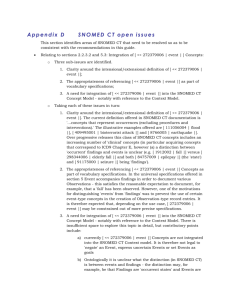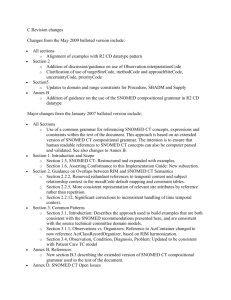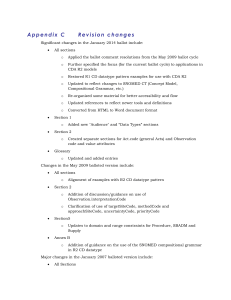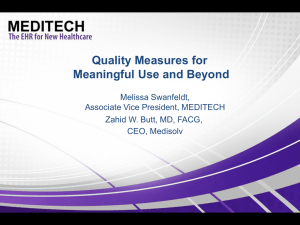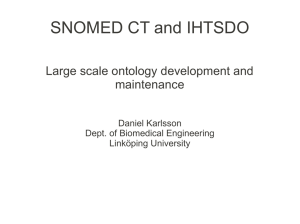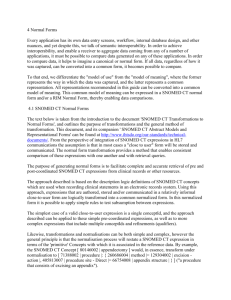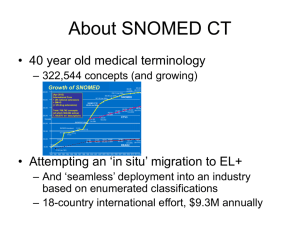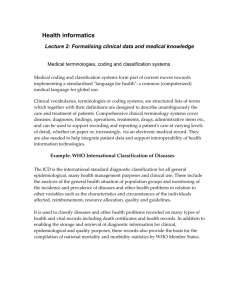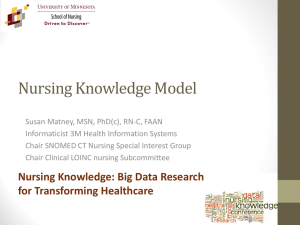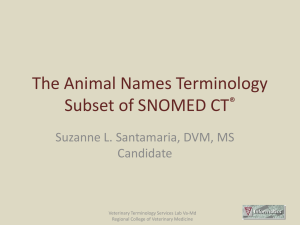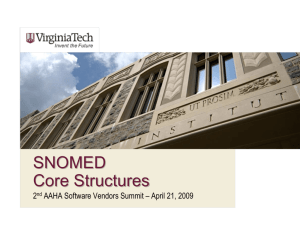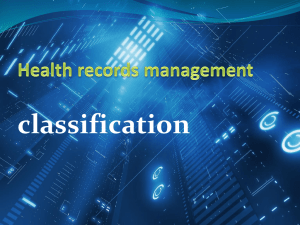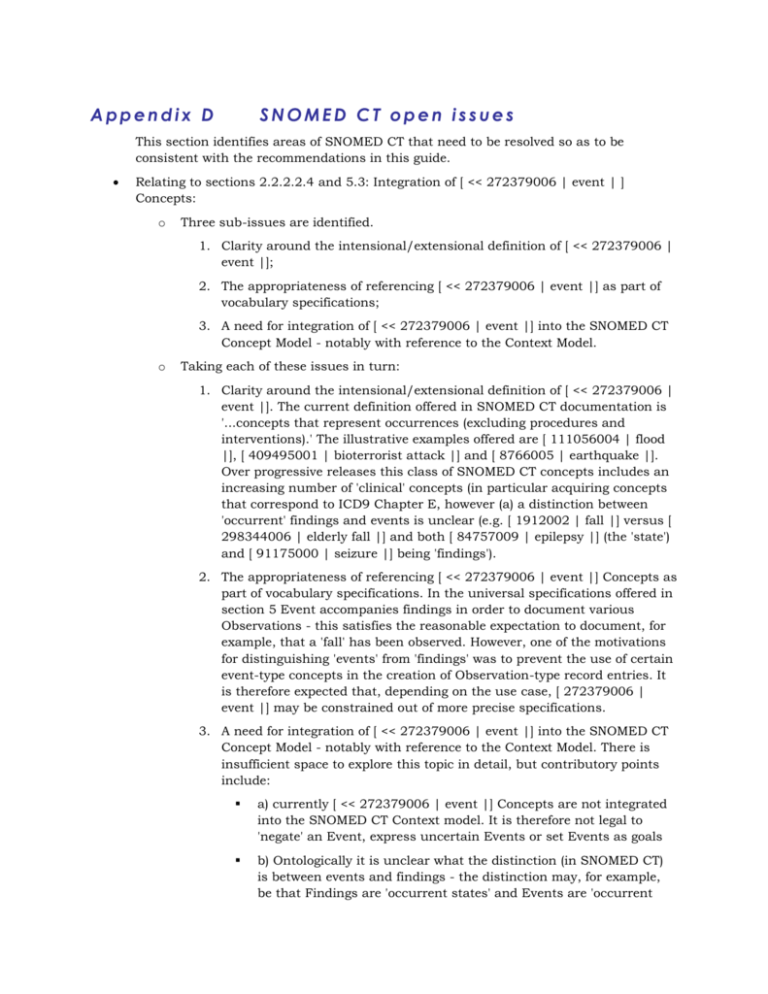
Appendix D
SNOMED CT open issues
This section identifies areas of SNOMED CT that need to be resolved so as to be
consistent with the recommendations in this guide.
Relating to sections 2.2.2.2.4 and 5.3: Integration of [ << 272379006 | event | ]
Concepts:
o
Three sub-issues are identified.
1. Clarity around the intensional/extensional definition of [ << 272379006 |
event |];
2. The appropriateness of referencing [ << 272379006 | event |] as part of
vocabulary specifications;
3. A need for integration of [ << 272379006 | event |] into the SNOMED CT
Concept Model - notably with reference to the Context Model.
o
Taking each of these issues in turn:
1. Clarity around the intensional/extensional definition of [ << 272379006 |
event |]. The current definition offered in SNOMED CT documentation is
'...concepts that represent occurrences (excluding procedures and
interventions).' The illustrative examples offered are [ 111056004 | flood
|], [ 409495001 | bioterrorist attack |] and [ 8766005 | earthquake |].
Over progressive releases this class of SNOMED CT concepts includes an
increasing number of 'clinical' concepts (in particular acquiring concepts
that correspond to ICD9 Chapter E, however (a) a distinction between
'occurrent' findings and events is unclear (e.g. [ 1912002 | fall |] versus [
298344006 | elderly fall |] and both [ 84757009 | epilepsy |] (the 'state')
and [ 91175000 | seizure |] being 'findings').
2. The appropriateness of referencing [ << 272379006 | event |] Concepts as
part of vocabulary specifications. In the universal specifications offered in
section 5 Event accompanies findings in order to document various
Observations - this satisfies the reasonable expectation to document, for
example, that a 'fall' has been observed. However, one of the motivations
for distinguishing 'events' from 'findings' was to prevent the use of certain
event-type concepts in the creation of Observation-type record entries. It
is therefore expected that, depending on the use case, [ 272379006 |
event |] may be constrained out of more precise specifications.
3. A need for integration of [ << 272379006 | event |] into the SNOMED CT
Concept Model - notably with reference to the Context Model. There is
insufficient space to explore this topic in detail, but contributory points
include:
a) currently [ << 272379006 | event |] Concepts are not integrated
into the SNOMED CT Context model. It is therefore not legal to
'negate' an Event, express uncertain Events or set Events as goals
b) Ontologically it is unclear what the distinction (in SNOMED CT)
is between events and findings - the distinction may, for example,
be that Findings are 'occurrent states' and Events are 'occurrent
state change triggers', but if this is the case then a more
comprehensive revision of content is required
c) if events and findings are both handled by the same 'Context
model', then rightly 'Findings Context' should be renamed 'Findings
and/or Event Context', but more significantly, even if suitable
values are present for logically representing events, the available
terms may be inadequate - Findings (as states) can comfortably be
spoken of as 'present' and 'absent', but Events may require a
different vocabulary (e.g. as things that 'happen' or 'do not happen').
Relating to sections 2.2.2 and 5.3:
o
A deprecated pattern of Act.code and Observation.value is described in sections
2.2.2.2 and 5.3.1, where Observation.value is a SNOMED CT expression
representing a [ << 404684003 | clinical finding (finding |) ] or a [ <<
413350009 | finding with explicit context |] and Act.code is represented by a
code other than "ASSERTION". No machine-readable guidance can currently be
provided that can satisfy the accompanying requirement that '...interpretation of
the Act.code together with the Observation.value does not yield a meaning that
is substantially different from the meaning implied if the Act.code was
"ASSERTION"'. Such a specification may be unachievable, but objective
guidance here would be regarded as very useful.
Page 2
HL7 V3 IG: TermInfo - Using SNOMED CT in CDA R2 Models, Release 1
© 2013 Health Level Seven International. All rights reserved.
January 2014

